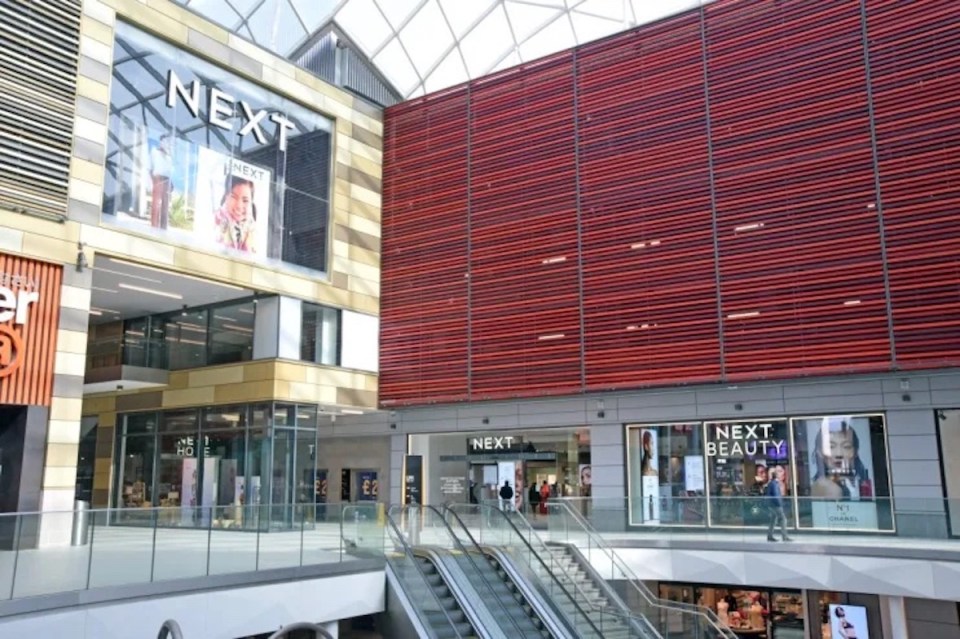Next boss Lord Wolfson: London’s High Streets had ‘more to worry about’ four years ago despite loss of brands like Topshop

Next boss Lord Wolfson has “less reason to worry about the high street” compared to a few years ago, on the tail of a slew of household names shuttering.
Physical retail was in a less concerning position than in recent years, when a switch to online shopping signalled a death knell for many staple retailers, Lord Simon Wolfson told CityA.M.
A few years ago, there was a “big structural shift” of business moving online and away from the physical high street, leading to the demise of some heavyweights, Wolfson said.
Retail titan Lord Wolfson said “the rate of that transfer [to online] seems to have slowed.”
“There’s a long list of closures that have happened since four years ago,” he said, explaining there was “more to worry about” then with an onslaught of collapses.
Other big-names to leave the high street in recent years have included department store Debenhams, apparel seller Topshop and baby clothes’ seller Mothercare.
However, this was “not to diminish” the economic pressures currently weighing on the sector, with Next warning its prices would rise by around eight per cent this spring.
The consumer crunch
The high street is currently battling challenges including eye-watering input inflation and budget-conscious consumers holding back on discretionary spending.
Recent months have seen Next snap up high street fashion brand Joules and online sofa seller Made.com, both which struggled in the face of weakening consumer confidence.
It was “very difficult” to predict when the high street would be able to bounce back from the pandemic amid the consumer crunch, Wolfson said.
It comes as Next published an “overly cautious” forecast that profit before tax would sit at £795m for the year ending January 2024, down 7.6 per cent versus the current year.
Next anticipated its full price sales will come in at 1.5 per cent below the current year, despite seeing better than expected trading this Christmas.
Shares in the company – which is regarded as a bellwether for retail sentiment – swelled by as much as eight per cent on Thursday.
Lord Wolfson has been vocal in the past about the British economy struggling with labour shortages, previously calling for changes to the immigration system to allow overseas workers to fill gaps.

While retail was not as impacted by shortages as hospitality and parts of agriculture, the sector “feels the squeeze most acutely” with temporary seasonal workers in warehouses and courier networks, he said.
There was “more that can be done to get people who are desperately needed into our country,” Wolfson said, with the UK still facing “significant shortages of people who want to do jobs in certain sectors.”
The supply chain was “in much better shape” versus last year, with delays in freight times easing up and transport of goods being quicker, Wolfson told CityA.M.
There is inflation in the system at the moment but we can see inflation easing as we move into the second half of the year”
Lord Wolfson
Although the high street is not chartering smooth waters at the minute, “there isn’t a sense of crisis in the same way as a few years ago,” Sophie Lund-Yates, lead equity analyst at Hargreaves Lansdown, told CityA.M.
“The onslaught of high profile collapses has slowed and means that stronger contenders are left standing,” she said.
The Covid-19 pandemic spurred lots of physical retailers to boost their online presence, with click and collect offerings serving as a “source of growth” for the future, Lund-Yates said.
She added: “For all that, there are still likely to be continued losses as the high street shakes off the last of the weaker names.”
According to analysis from the Centre For Retail Research, some 49 companies shut shop in the UK in 2022, with 19 failing in 2021.
The Covid-19 pandemic hammered the high street, with 54 businesses going bust in 2020, while online retailers’ saw a boost to their fortunes.
In comparison, some 25 companies collapsed in 2015 while 30 failed in 2016 – although these numbers included some long-standing stalwarts, such as BHS.